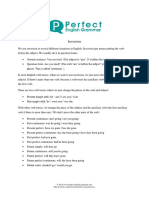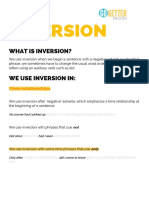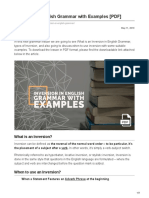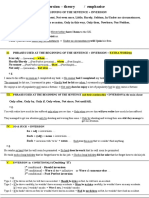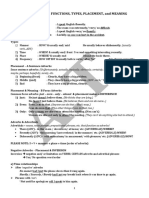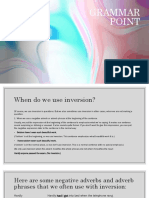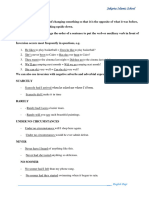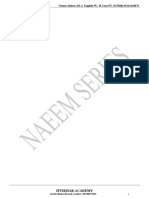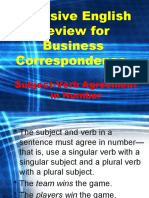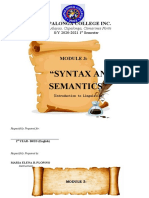0% found this document useful (0 votes)
59 views32 pagesInversion and Advanced Structures of Inversion
The document explains the concept of inversion in English grammar, highlighting its purpose for emphasis and formality in various contexts. It details different cases of inversion, including negative adverbials, conditional sentences, and structures with 'so,' 'such,' and 'neither/nor.' Additionally, it outlines common mistakes in using inversion and provides practice examples to reinforce correct usage.
Uploaded by
mariamfaraht52Copyright
© © All Rights Reserved
We take content rights seriously. If you suspect this is your content, claim it here.
Available Formats
Download as PDF, TXT or read online on Scribd
0% found this document useful (0 votes)
59 views32 pagesInversion and Advanced Structures of Inversion
The document explains the concept of inversion in English grammar, highlighting its purpose for emphasis and formality in various contexts. It details different cases of inversion, including negative adverbials, conditional sentences, and structures with 'so,' 'such,' and 'neither/nor.' Additionally, it outlines common mistakes in using inversion and provides practice examples to reinforce correct usage.
Uploaded by
mariamfaraht52Copyright
© © All Rights Reserved
We take content rights seriously. If you suspect this is your content, claim it here.
Available Formats
Download as PDF, TXT or read online on Scribd
/ 32
